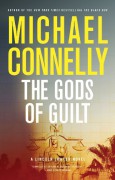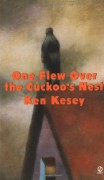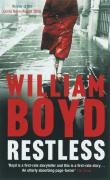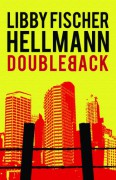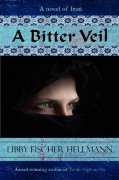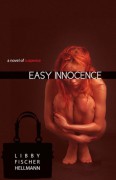BookLikes
World's #1 Blog Platform designed for book bloggers, reviewers, writers - all Book Lovers. Your Reading Life. Redesigned.
Author Talks: Libby Fischer Hellmann

Please welcome author Libby Fischer Hellmann in BookLikes' Author Talks.
Libby Fischer Hellmann is a fiction crime writer known from gripping thrillers and strong female characters. She has published 12 novels and 20 short stories. On BookLikes Libby talks about her writing path, her inspirations and the most recent release. She also explains why writing a fiction novel is the hardest thing.
You can find Libby Hellmann on BookLikes, follow her blog where she shares the publishing and bookshelf updates: Libby Fischer Hellmann
And one more thing, to win one of Libby's books, just read on.
![]() It wasn’t always about the writing. You’re graduated with a BA in History, worked in television and in the PR, since 1985 you’re the owner of Fischer Hellmann Communications. How did it happen that you’ve become a fiction writer?
It wasn’t always about the writing. You’re graduated with a BA in History, worked in television and in the PR, since 1985 you’re the owner of Fischer Hellmann Communications. How did it happen that you’ve become a fiction writer?
![]() Funny about that. I was always a voracious reader. Mostly for escape. But sometimes for information. My mother was and continues to be a big mystery reader, so of course, I never wanted to read mysteries. But I did read a lot of thrillers, and eventually I started reading mysteries too. Some novels were so good I’d say to myself, “If I can write a paragraph as well as James Lee Burke, I’ll die happy.
Funny about that. I was always a voracious reader. Mostly for escape. But sometimes for information. My mother was and continues to be a big mystery reader, so of course, I never wanted to read mysteries. But I did read a lot of thrillers, and eventually I started reading mysteries too. Some novels were so good I’d say to myself, “If I can write a paragraph as well as James Lee Burke, I’ll die happy.
And there were others I’d throw across the room and say, “I can do better than that.” Ultimately those two attitudes came together, and I started to write. Actually I just blogged about the “spark” that lit the fire…it’s an amusing story. If readers are interested, they can find that blog right here.
![]() Your first novel released in 2002, And Eye for Murder, features Ellie Foreman, a video producer. You’ve also worked as a film editor, assistant director, and producer. How does you life experiences influence your work and your book characters?
Your first novel released in 2002, And Eye for Murder, features Ellie Foreman, a video producer. You’ve also worked as a film editor, assistant director, and producer. How does you life experiences influence your work and your book characters?
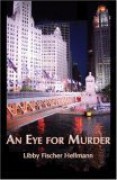
![]() They say write what you know. And I did know a bit about video production. So I figured, let’s make Ellie a producer, and at least I won’t have to do too much research about that. Of course, since I started writing Ellie, video production has changed dramatically (everything is now digital) so I ended up having to do the research anyway.
They say write what you know. And I did know a bit about video production. So I figured, let’s make Ellie a producer, and at least I won’t have to do too much research about that. Of course, since I started writing Ellie, video production has changed dramatically (everything is now digital) so I ended up having to do the research anyway.
All kidding aside, though, one of the major benefits of having been a film/video producer is that I see things visually. Every chapter is a scene, and I have to see it in my mind’s eye, complete with establishing shots, close-ups, pans, and dollies, in order to write it. If I can’t see it, it doesn’t get written.
![]() How long does it take to write a book? Can you tell our readers about the writing process and its phases?
How long does it take to write a book? Can you tell our readers about the writing process and its phases?
![]() I’m a slow writer. It takes me about a year. Mostly because I second-guess myself all the time. Writing fiction is the hardest thing I’ve ever done, and I want to make sure I’m doing it right. Plus, now that I’m pretty much retired from my day job, I’m in no hurry.
I’m a slow writer. It takes me about a year. Mostly because I second-guess myself all the time. Writing fiction is the hardest thing I’ve ever done, and I want to make sure I’m doing it right. Plus, now that I’m pretty much retired from my day job, I’m in no hurry.
The phases a writer goes through—or at least this writer does— are circular:
-- This is going to be the best story in the world
-- Hmm. How am I going to do this?
-- Who did I think I was? I can’t write. Everyone is going to see through me.
-- Well, maybe that chapter wasn’t so bad.
-- Jeez… when is this dog going to be finished?
-- It’s done! Now I can edit! Yay!
-- I love this story.
![]() Today is the official release day of your newest crime thriller, Nobody’s Child. Congratulations! Can you tell us more about your brand new novel and what are you working on right now?
Today is the official release day of your newest crime thriller, Nobody’s Child. Congratulations! Can you tell us more about your brand new novel and what are you working on right now?
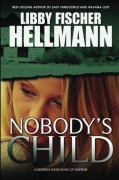
![]() Nobody’s Child is the 4th installment in my Georgia Davis PI series. It’s a dark book – in it, Georgia discovers she has a half-sister she never knew about. But that sister is in big trouble.
Nobody’s Child is the 4th installment in my Georgia Davis PI series. It’s a dark book – in it, Georgia discovers she has a half-sister she never knew about. But that sister is in big trouble.
I explore sex trafficking, baby farms, the Russian mafia, and more. It actually took me years to write this book. I started 4 years ago, but then put it aside and wrote 3 stand-alone historical thrillers instead. It was finally time to come back to Georgia. Next is going to be a new Ellie Foreman novel! As soon as I finish a novella about the Manhattan Project.
![]() Your books are mainly thrillers, suspense mysteries and crime stories. Why have you decided to explore & describe the crime world?
Your books are mainly thrillers, suspense mysteries and crime stories. Why have you decided to explore & describe the crime world?
![]() They are the type of books that interest me as a reader. I love to explore the depths of evil to which humans can sink, and I also love the fact that in most cases, the “bad guy” is caught at the end, and justice is served. But there’s another compelling reason I love crime fiction.
They are the type of books that interest me as a reader. I love to explore the depths of evil to which humans can sink, and I also love the fact that in most cases, the “bad guy” is caught at the end, and justice is served. But there’s another compelling reason I love crime fiction.
At the beginning of a story, the world of the story is in order. Very quickly, though, that order turns into chaos as a crime is committed. It’s the job of the protagonist (whether a professional or amateur sleuth) to restore order. I love that concept, and I enjoy presenting a puzzle that needs to be completed so that the protagonist can restore order and serve justice. In that sense, mysteries aren’t that different from Westerns, which share the same dynamics. I’m not drive to write a Western, however.
![]() Can you tell our readers where the ideas come from and how do you develop the plot? Do you consult the crimes with a police, detective, a lawbreaker?
Can you tell our readers where the ideas come from and how do you develop the plot? Do you consult the crimes with a police, detective, a lawbreaker?
![]() I ALWAYS consult with the police, detectives, and other law enforcement people. For example, I’ll talk to defense lawyers and/or prosecutors if I’m writing a trial scene or need to understand procedure; I’ll also talk to a medical examiner, doctors, stockbrokers, car hobbyists, anyone I need to in order to get it right. Still, every once in a while, an error creeps in, and it’s painful. I never want anymore to throw my book across the room and say “She doesn’t know what she’s talking about.”
I ALWAYS consult with the police, detectives, and other law enforcement people. For example, I’ll talk to defense lawyers and/or prosecutors if I’m writing a trial scene or need to understand procedure; I’ll also talk to a medical examiner, doctors, stockbrokers, car hobbyists, anyone I need to in order to get it right. Still, every once in a while, an error creeps in, and it’s painful. I never want anymore to throw my book across the room and say “She doesn’t know what she’s talking about.”
As for ideas and where they come from, the best explanation I can give is a video I made several years ago: https://www.youtube.com/watch?v=A12QZfoxOKA&feature=youtu.be
![]() Do you have any writing habits, like working with your favorite coffee mug, writing the drafts with your lucky pencil, or inventing the plot under the shower?
Do you have any writing habits, like working with your favorite coffee mug, writing the drafts with your lucky pencil, or inventing the plot under the shower?
![]() Not really. I write anywhere and anytime I can. But I’m not as disciplined as I used to be.
Not really. I write anywhere and anytime I can. But I’m not as disciplined as I used to be.
Years ago I used to write for an hour or two every morning when I was fresh. Now, unfortunately, the demands of marketing and promotion tend to overshadow the writing. I wish that wasn’t the case. The problem is, as I mentioned before, that writing fiction is the hardest thing I’ve ever done.
It’s much easier for me to whip up a blogpost, answer interview questions, or create events than to write a paragraph of fiction. I honestly don’t know how I wrote the last three novels. I can’t remember writing them. All I remember is the promotion before during and after I wrote them. Sad, isn’t it…
![]() Have you ever experienced or witnessed a dangerous situation, similar to the ones described in your novels?
Have you ever experienced or witnessed a dangerous situation, similar to the ones described in your novels?
![]() Thankfully, no. I live a sheltered life in white picket fence land and hope I always will. The worst thing that happened to me was being mugged in downtown Chicago. I wasn’t injured, fortunately. Now I keep fraud alerts on all my credit cards and have a burglar alarm.
Thankfully, no. I live a sheltered life in white picket fence land and hope I always will. The worst thing that happened to me was being mugged in downtown Chicago. I wasn’t injured, fortunately. Now I keep fraud alerts on all my credit cards and have a burglar alarm.
![]() You grew up in Washington but most of your novels and stories are set in Chicago, and you’re even called a Chicago mystery writer. What’s between you and Chicago? ;-)
You grew up in Washington but most of your novels and stories are set in Chicago, and you’re even called a Chicago mystery writer. What’s between you and Chicago? ;-)
![]() I moved to Chicago in 1978, so I’ve lived here over 35 years. It’s home now, and always will be. DC was more or less a unrealistic city where the only industries are government and international relations, plus the people who serve them. Chicago is a REAL city, with real crime, real graft and real corruption. It’s a city of light, but often a city of dark too. I love the contrast between the two. That’s one of the reasons I edited the wonderful anthology CHICAGO BLUES – to explore the light vs the dark.
I moved to Chicago in 1978, so I’ve lived here over 35 years. It’s home now, and always will be. DC was more or less a unrealistic city where the only industries are government and international relations, plus the people who serve them. Chicago is a REAL city, with real crime, real graft and real corruption. It’s a city of light, but often a city of dark too. I love the contrast between the two. That’s one of the reasons I edited the wonderful anthology CHICAGO BLUES – to explore the light vs the dark.
In DC, it’s who you know and the old boys’ (or girls’) networks that run the city. But in Chicago I’ve always had the sense that if you have a good idea and you’re willing to work for it, you can make it. Plus, have you ever tried to live through August in Washington? It’s Dante’s hell. I wrote an essay about Chicago, called “I Moved to Chicago for the Weather,” and readers can find it here.
![]() So far you’ve written book series (The Ellie Foreman Mysteries, The Georgia Davis Mysteries), stand alone thrillers (Set the Night on Fire, A Bitter Veil, Havana Lost) and many short stories. Which format is the most comfortable for you, and how do you choose what to write next?
So far you’ve written book series (The Ellie Foreman Mysteries, The Georgia Davis Mysteries), stand alone thrillers (Set the Night on Fire, A Bitter Veil, Havana Lost) and many short stories. Which format is the most comfortable for you, and how do you choose what to write next?
![]() The story dictates the format. Sometimes I realize that a story is better suited to being short; other times it naturally expands into a novel. The trickiest format is a novella – I’m never sure whether it should expand or contract.
The story dictates the format. Sometimes I realize that a story is better suited to being short; other times it naturally expands into a novel. The trickiest format is a novella – I’m never sure whether it should expand or contract.
![]() You’re a successful writer. Your books were highly acclaimed by critics, and what’s the most important, the readers. What would be your advice for aspiring writers, and those struggling to get published? How to be successful, and does it mean that you’re fulfilled as a writer?
You’re a successful writer. Your books were highly acclaimed by critics, and what’s the most important, the readers. What would be your advice for aspiring writers, and those struggling to get published? How to be successful, and does it mean that you’re fulfilled as a writer?
![]() That’s a difficult question, because writers have different reasons for writing. I like to tell stories, and when people enjoy them, I’m happy. I hate the process of writing, though (I said earlier it’s the hardest thing I’ve ever done).
That’s a difficult question, because writers have different reasons for writing. I like to tell stories, and when people enjoy them, I’m happy. I hate the process of writing, though (I said earlier it’s the hardest thing I’ve ever done).
Still, when I hold a book in my hands after it’s published, it seems like a miracle. And when I think that I’ve done this 11 times, now, I’m amazed. I never knew I had it in me.

What are you reading now?
Paper books or e-book? Why?
Both. Depends where I am, what I’m in the mood for. I love the convenience of my Kindle, and I love the feel of a book. I am listening to a lot more audiobooks too.
Can you choose one favorite book character from your books? Why?
My favorite character from my books – it’s hard to choose a favorite, so instead I’ll choose the easiest.
It’s Jake Foreman, father of Ellie Foreman (my first series protagonist). I’m not sure what it is but whenever he jumps onto the page, he practically writes himself. I never know what he’s going to say, but it’s always the right thing. He’s funny too, and can’t help stealing whatever scene he’s in. I’ve always wondered where he came from since he’s nothing like my own father. I suppose he’s the father I wished I’d had.
What titles won your heart? Recommend must-reads for our readers.
Your favorite quotes?
I think a lot of quotes are meaningful, but my all time favorite is attributed to Maya Angelou but really was coined by novelist Pamela Redmond Satran:
Every woman should have a set of screwdrivers,
a cordless drill, and a black lace bra.
What’s your favorite writing and reading spot?
Our readers would love to see some photos ;-)
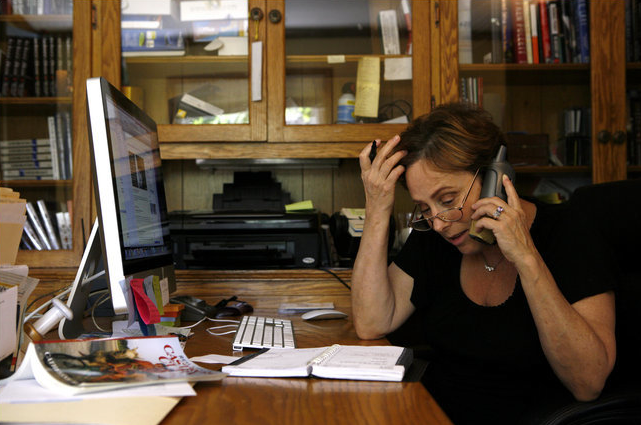

You can find books by Libby Fischer Hellmann on BookLikes:
Read other talks on BookLikes
Author Talks on BookLikes:
Literary Inspirations of Rayne Hall
Author Talks: Elizabeth Watasin, Part One
Author Talks: Elizabeth Watasin, Part Two
Author Talks: Ned Hayes, Part One
Author Talks: Ned Hayes, Part Two
Author Talks: Lauren B. Davis, Part One
Author Talks: Lauren B. Davis, Part Two
Blog Talks on BookLikes:
Book Blog Talks: Happy Books, Part One
Book Blog Talks: Happy Books, Part Two
 4
4

